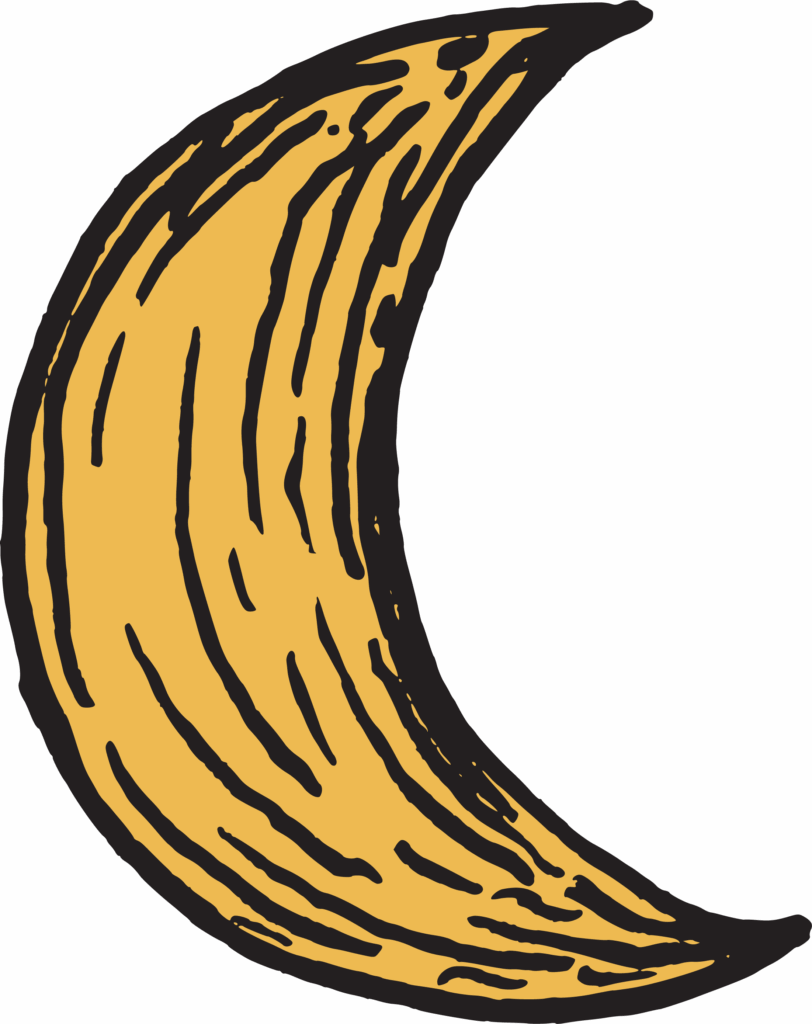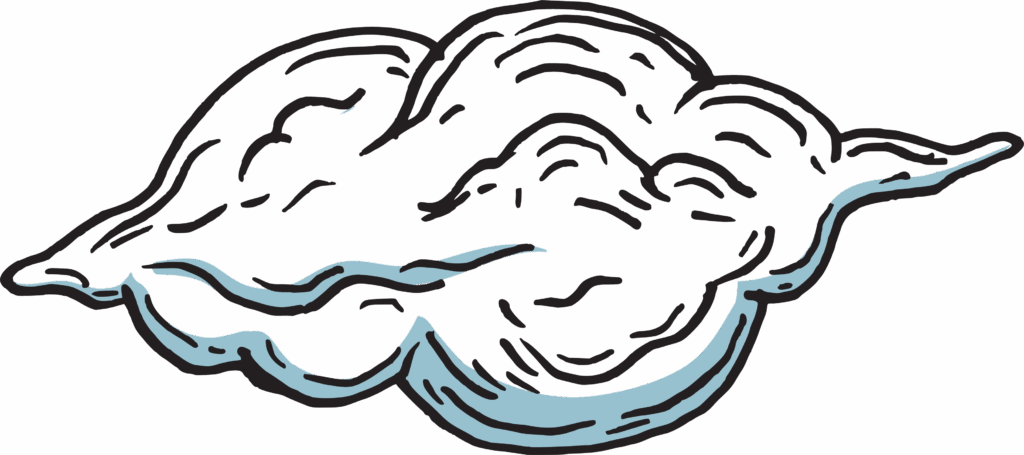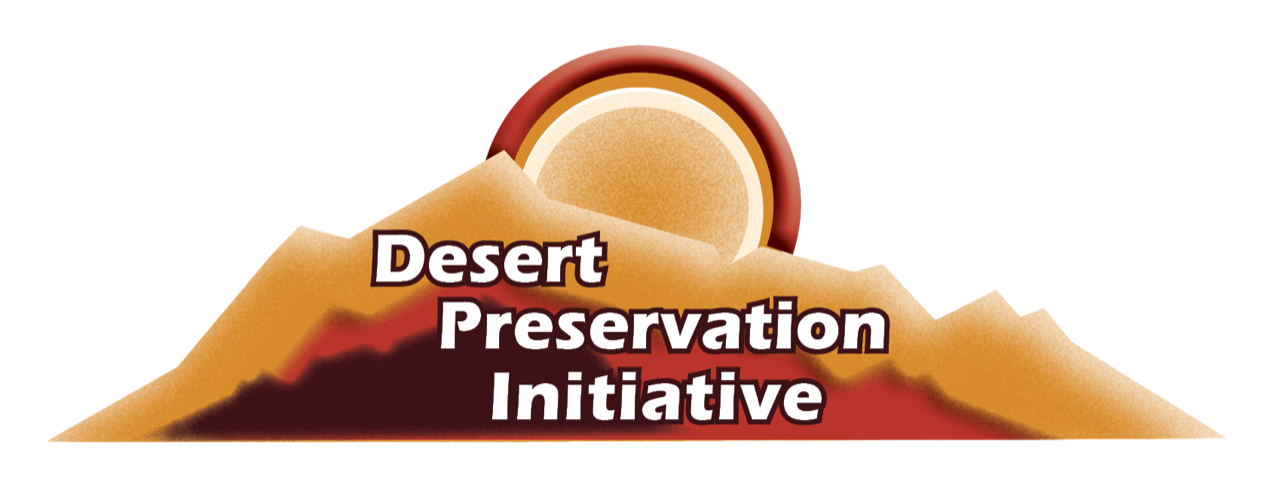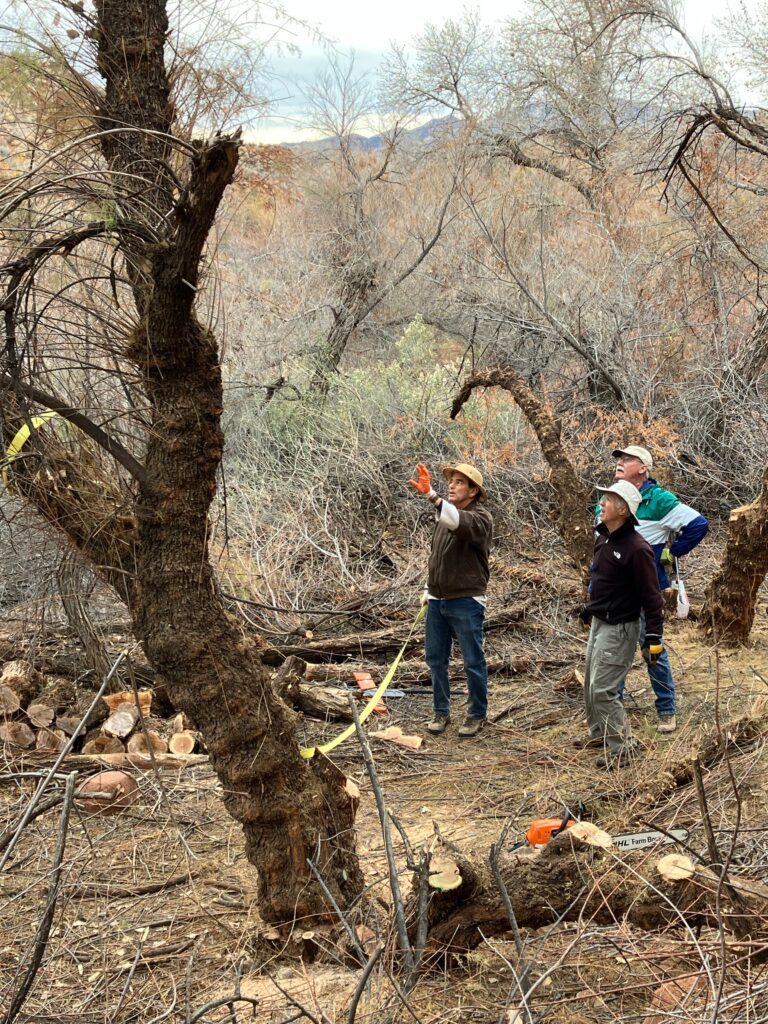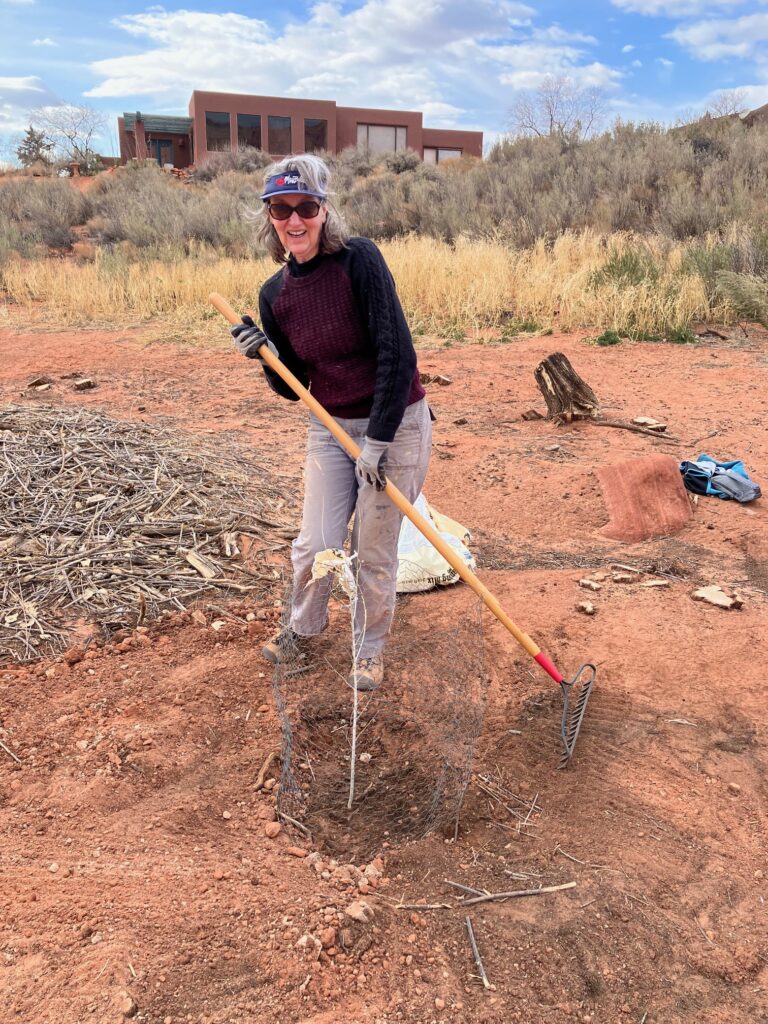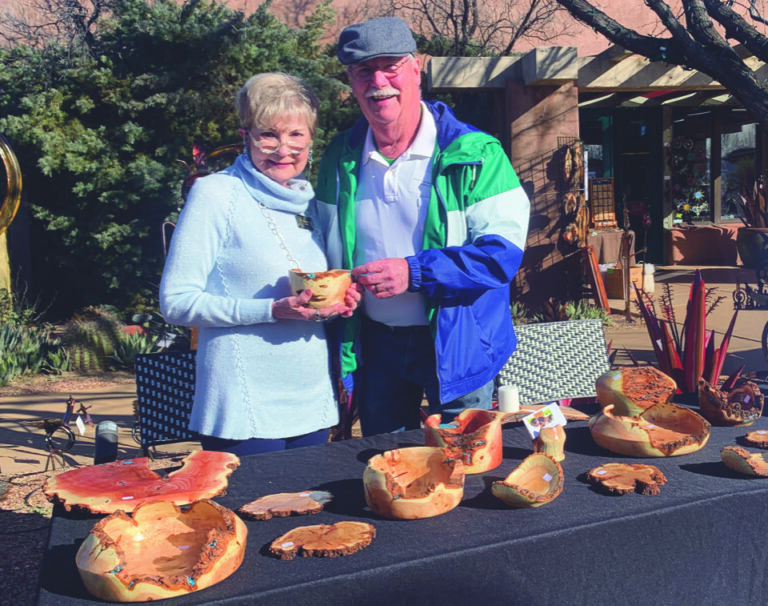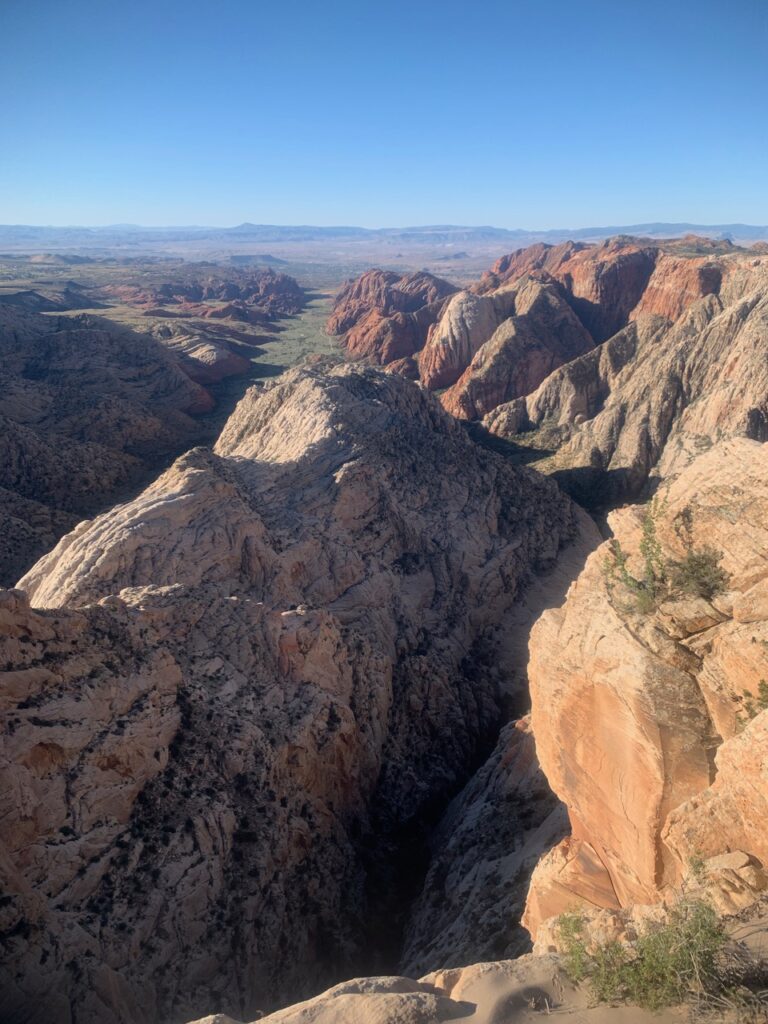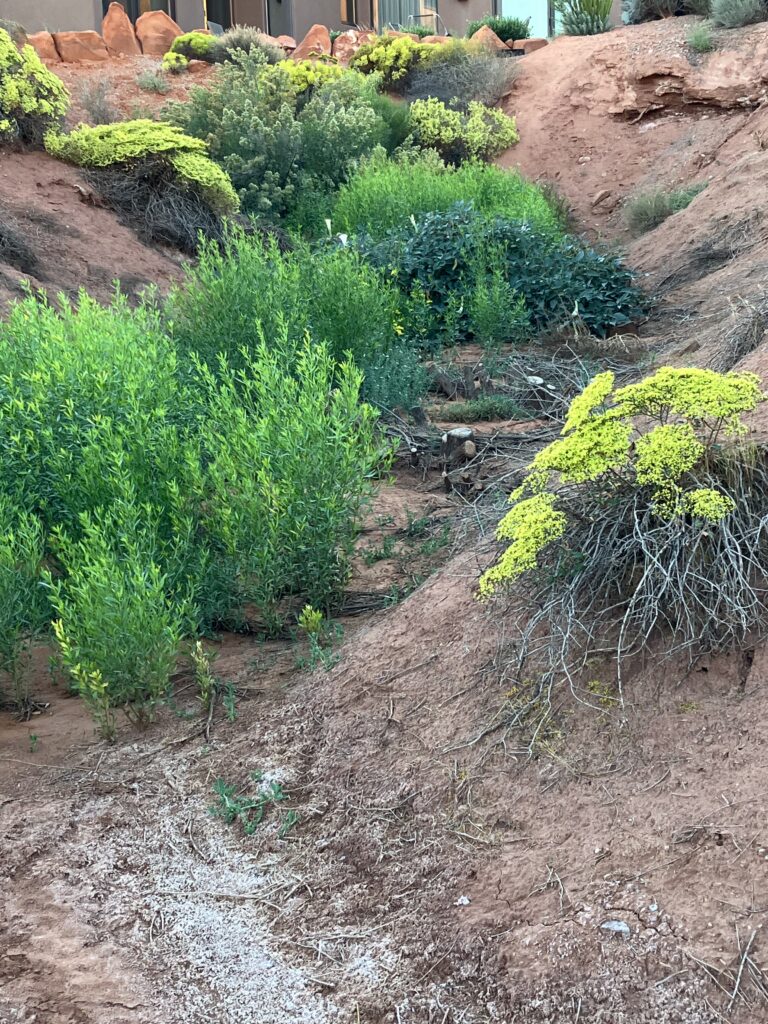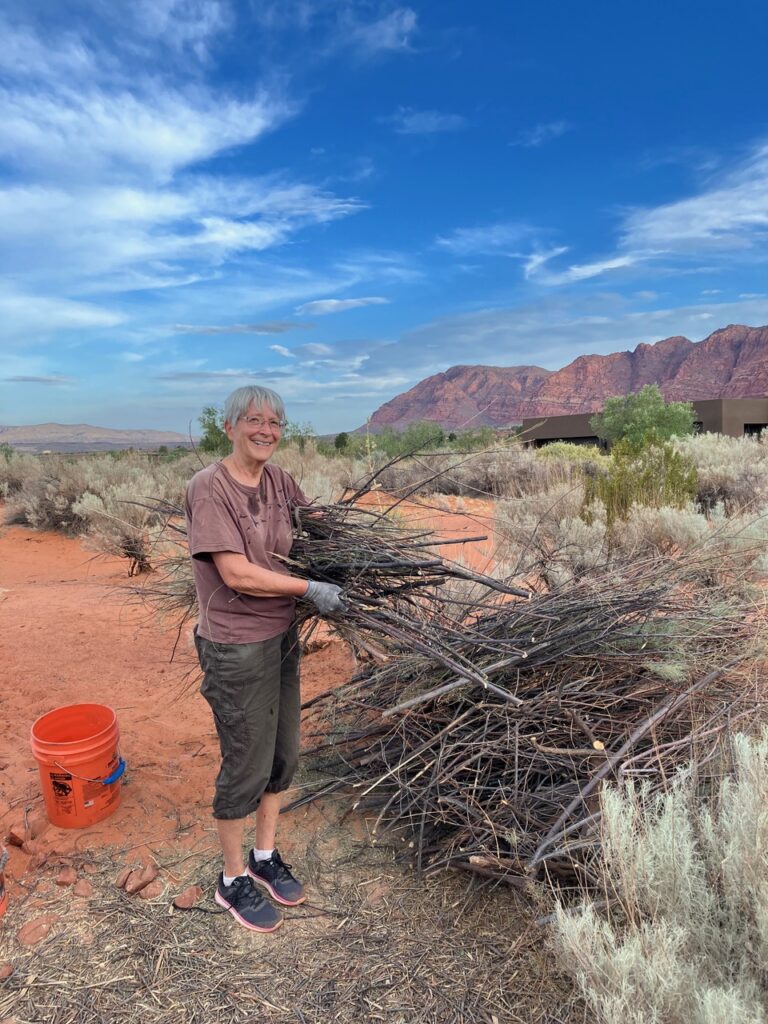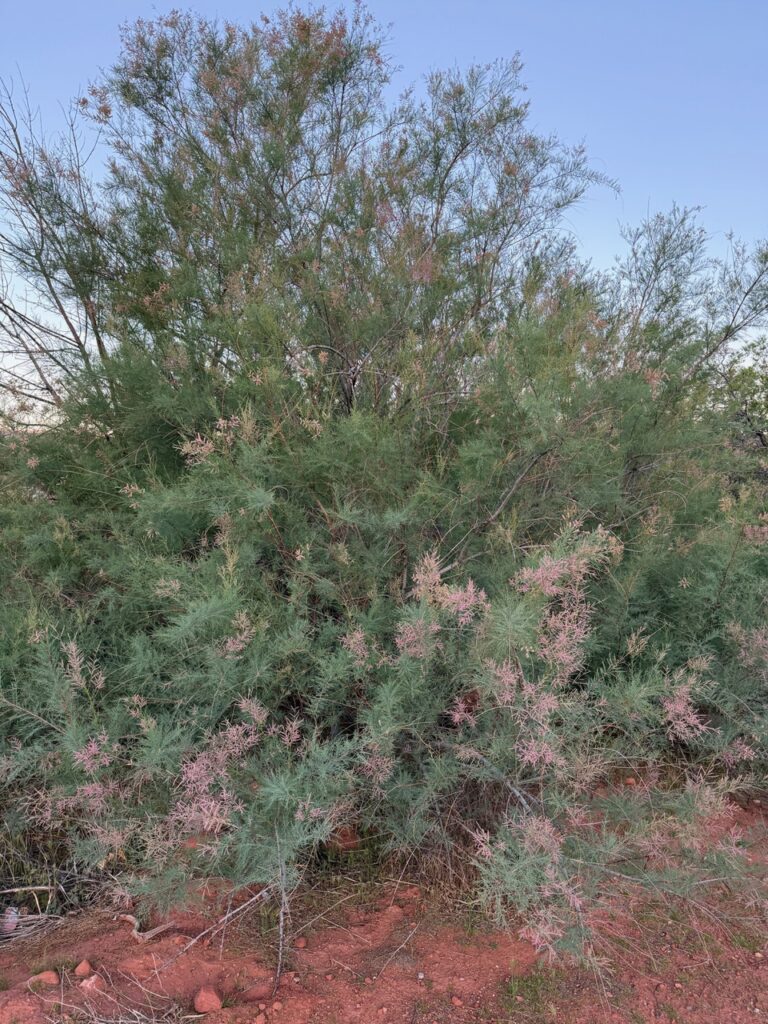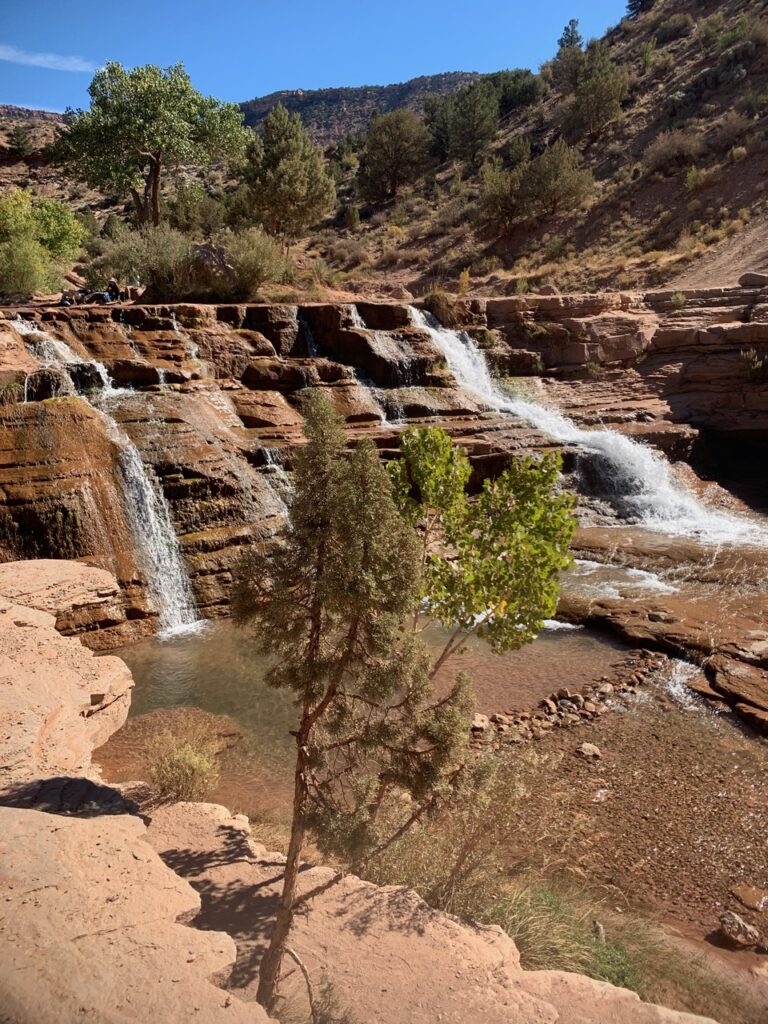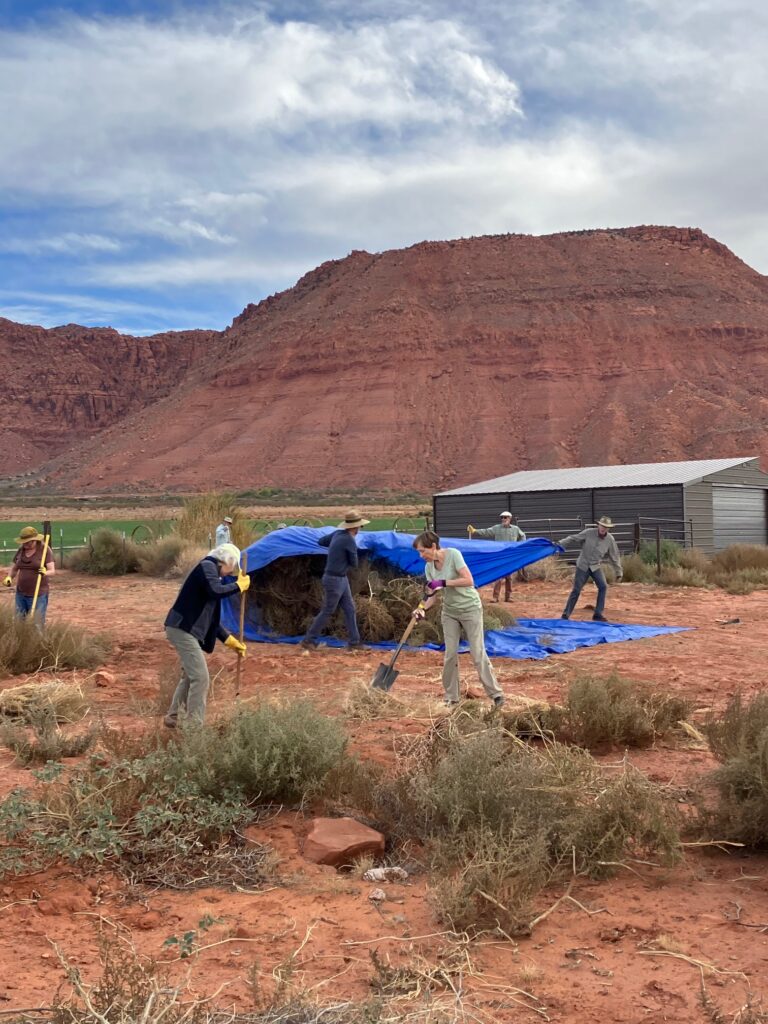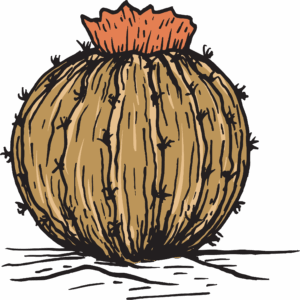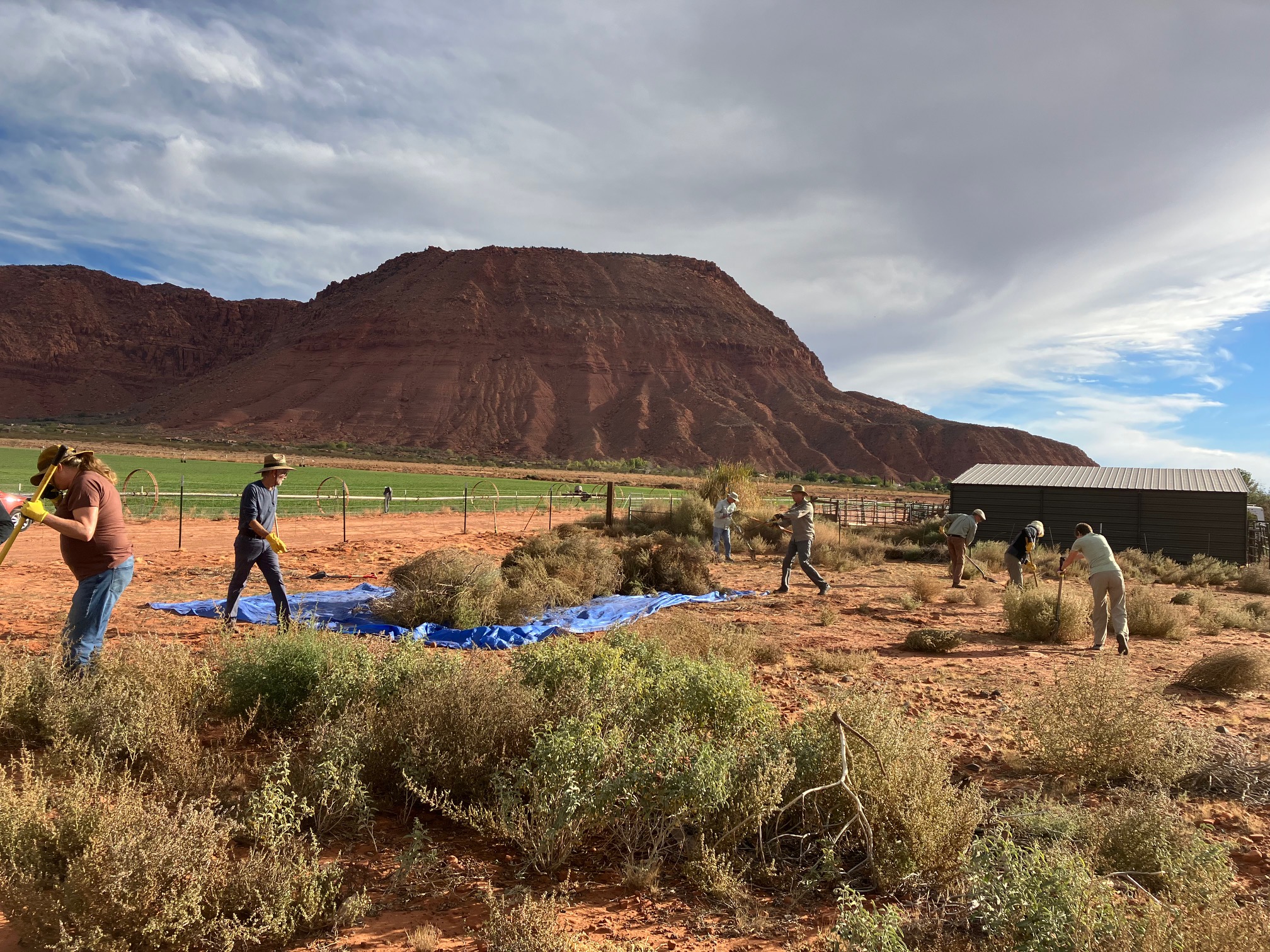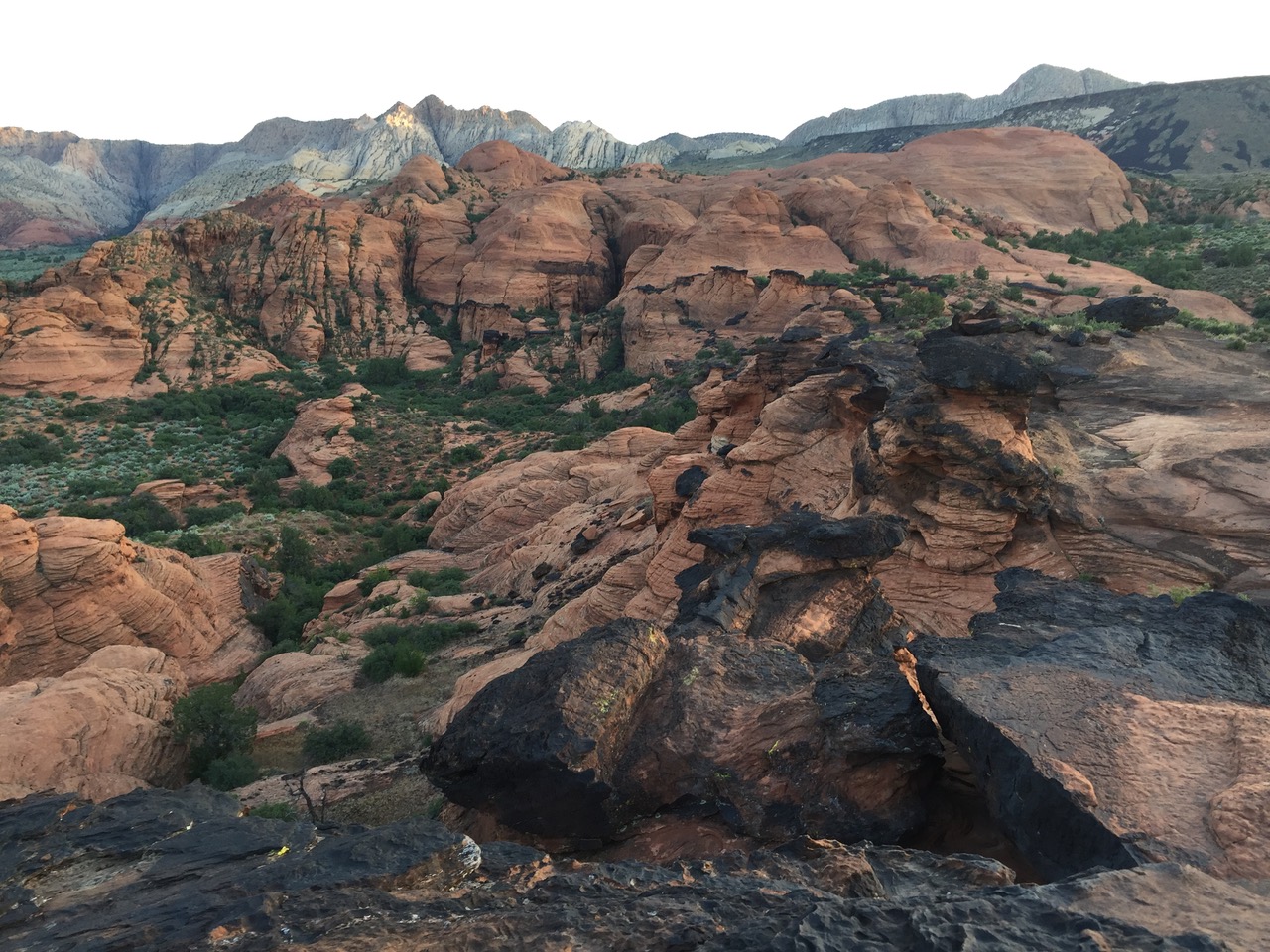Desert Preservation Initiative
Restoring native habitat. Reducing fire risk.
Our Mission
We are drawn to the surreal beauty of Utah. It fills our lungs with wonder and sparks the joy of adventure. Residents and visitors alike know instantly this natural landscape must be preserved, to be shared with neighbors and friends, with our children and grandchildren.
Based on this love of the landscape, the driving mission of the Desert Preservation Initiative (DPI) is to restore native ecosystems using science-based methods to create a sustainable future for the health and beauty of our shared environment.
What this means, in practice, is that we seek to identify invasive species, plants classified as non-native weeds, that are harmful to natural habitats or animals. Typically, these plants grow aggressively and multiply quickly without natural controls. The longer they are left unchecked, the greater the damage they can create and the more expensive and difficult it is to control their spread.
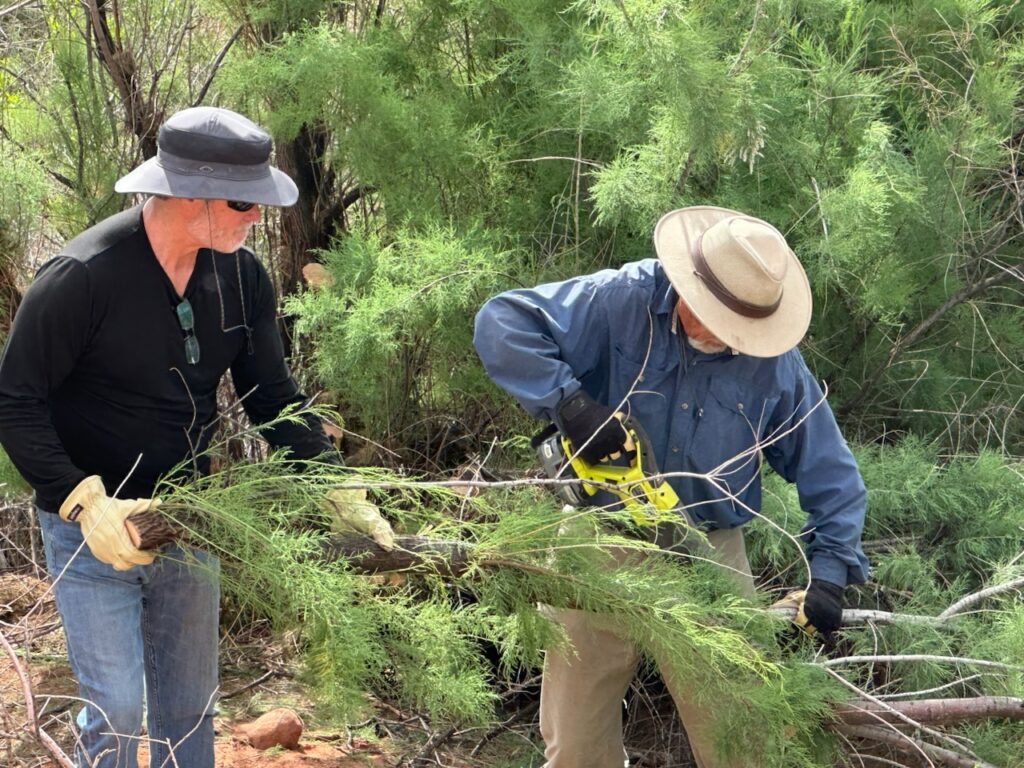
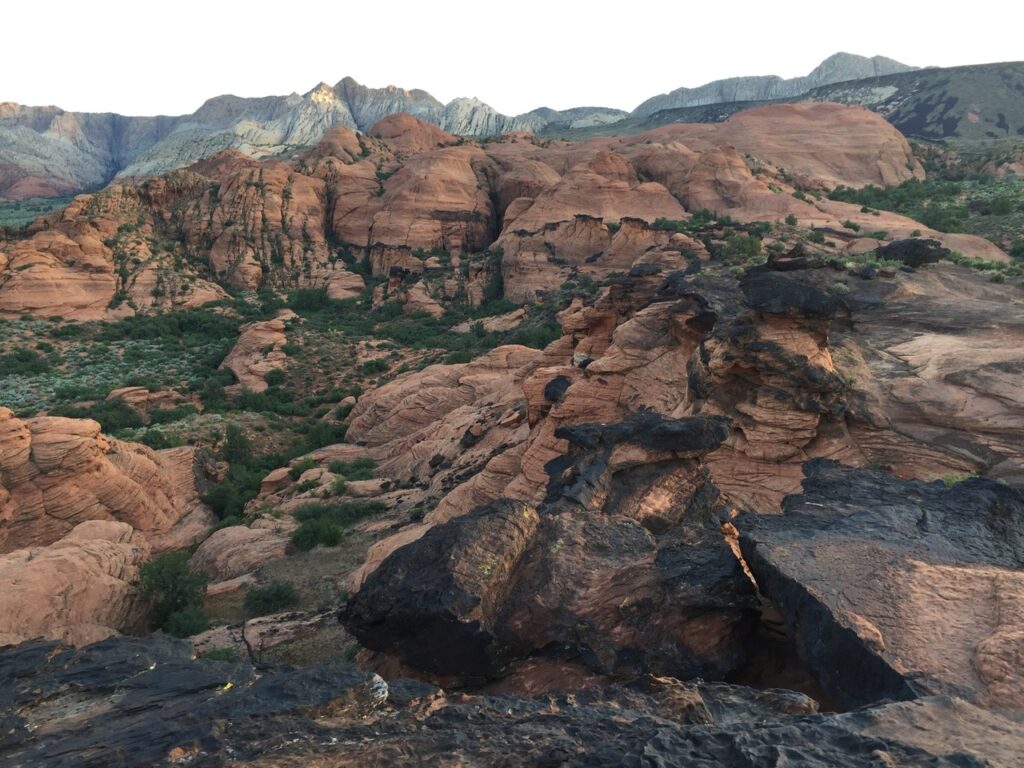
The Time Is Now
To act now and monitor going forward will preserve this wondrous landscape for future generations.
Critical to supporting this effort are our educational and advocacy goals–sharing information about what it takes to minimize erosion and restore and revegetate damaged areas as we work to inspire our neighbors and area partners to recognize the importance of these issues and join us in addressing them.
DPI: Stewardship in Action
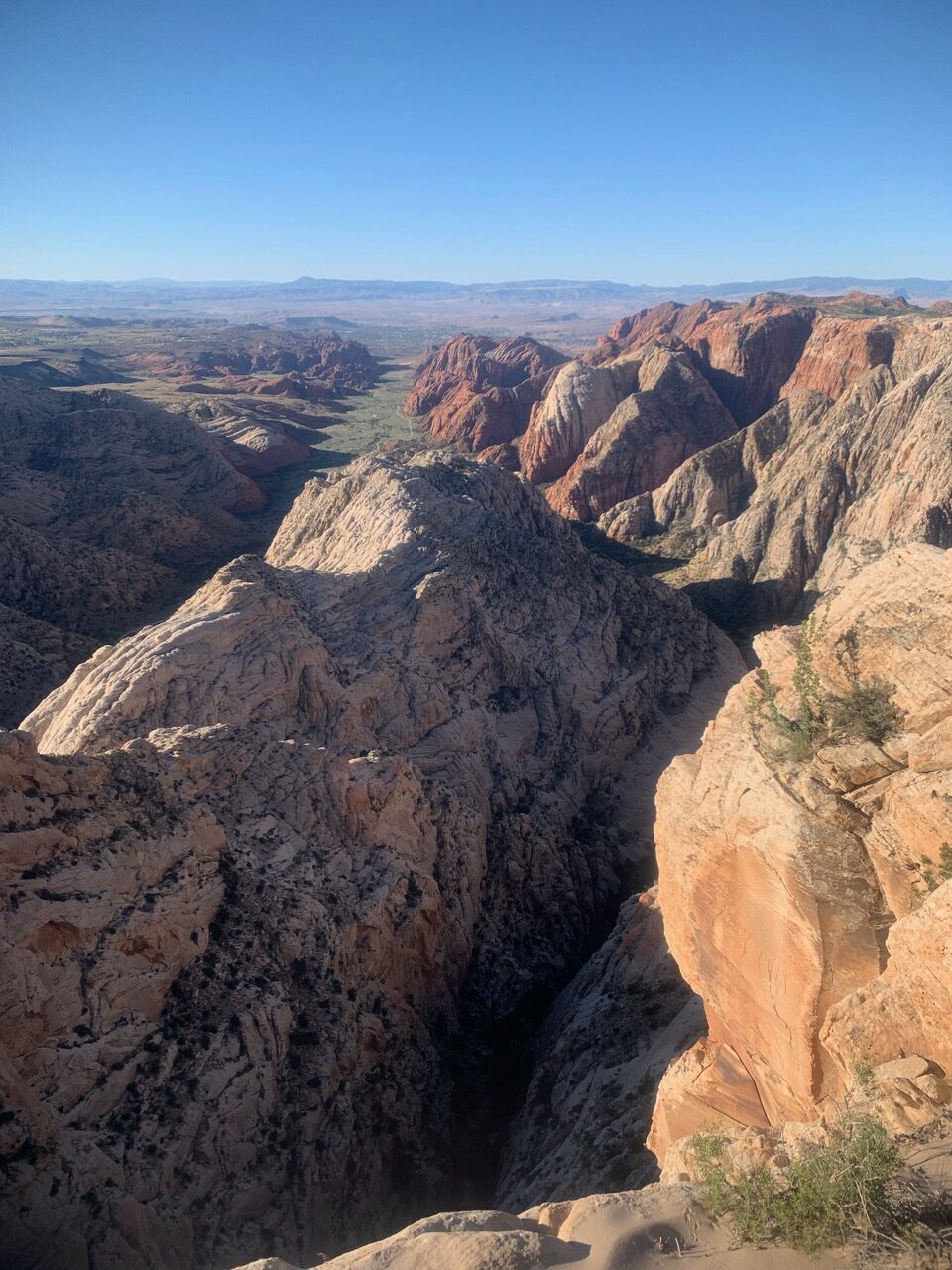
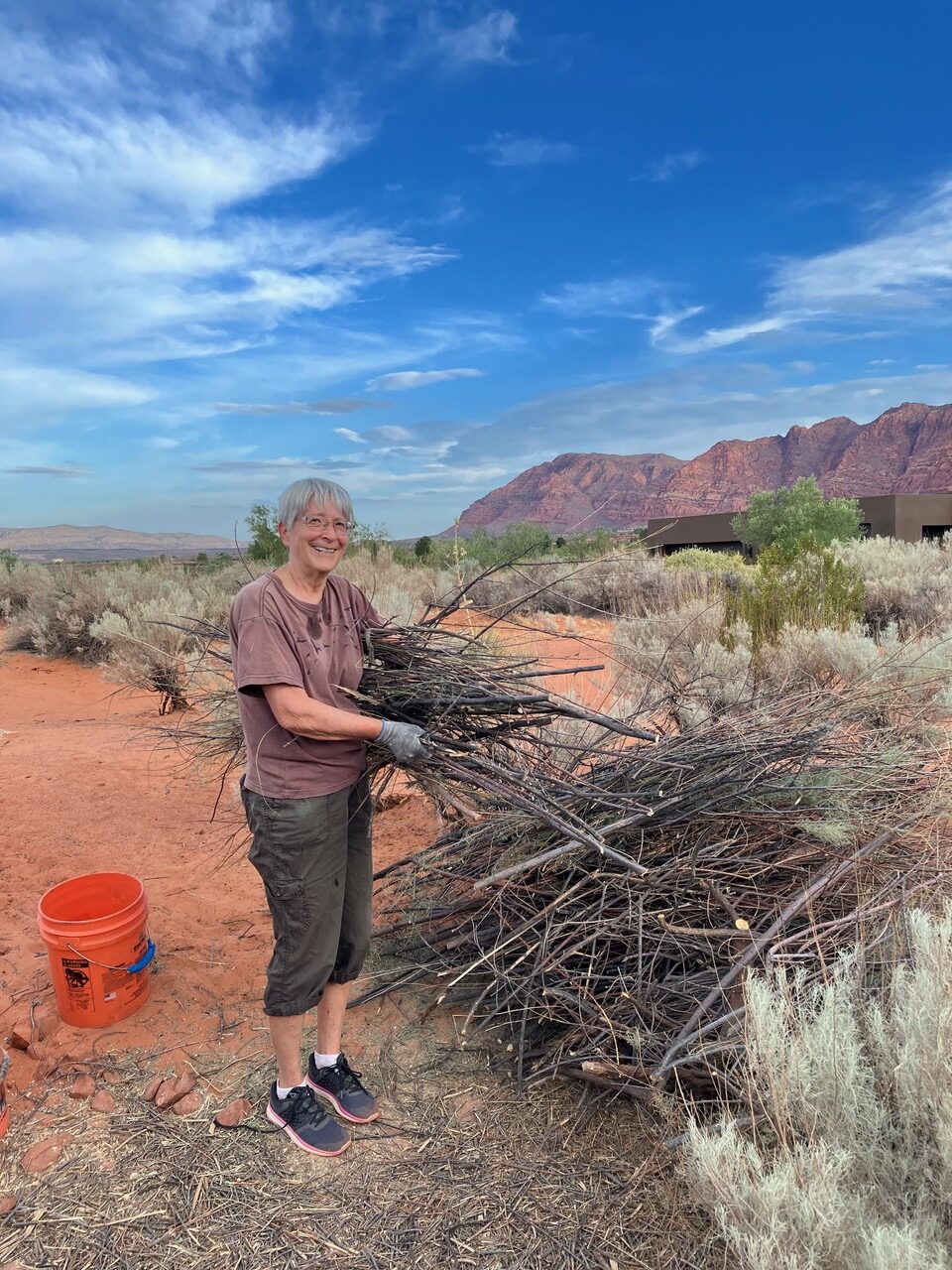
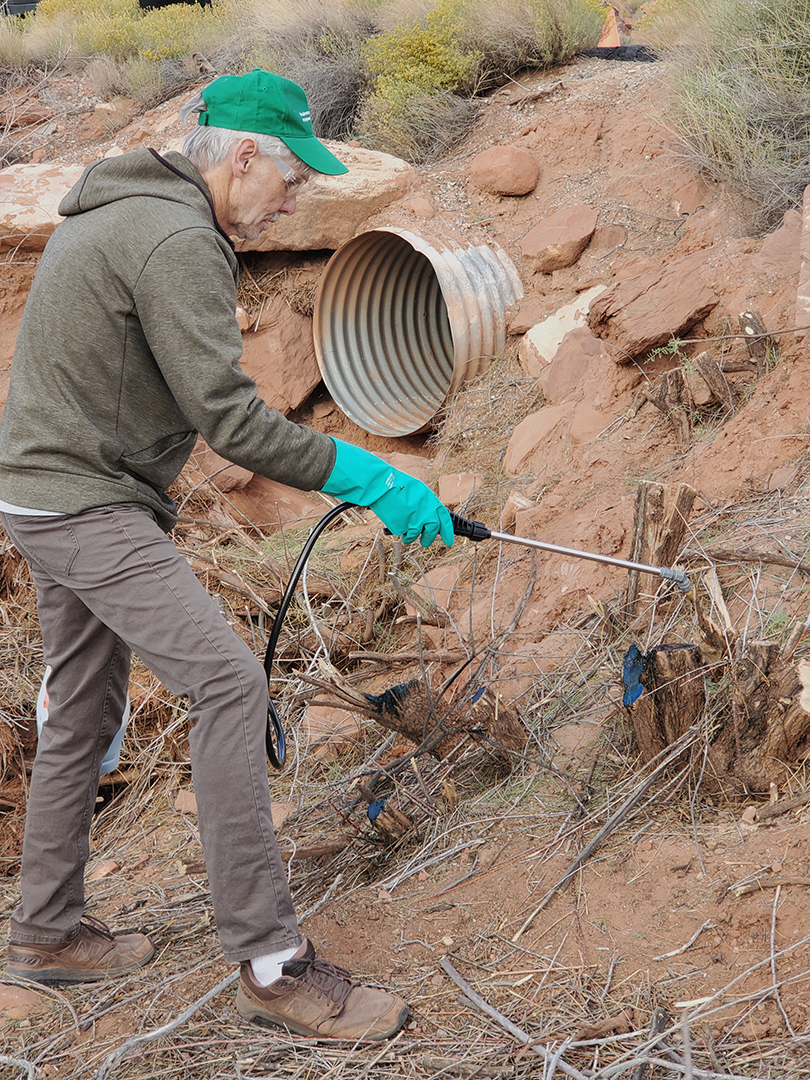
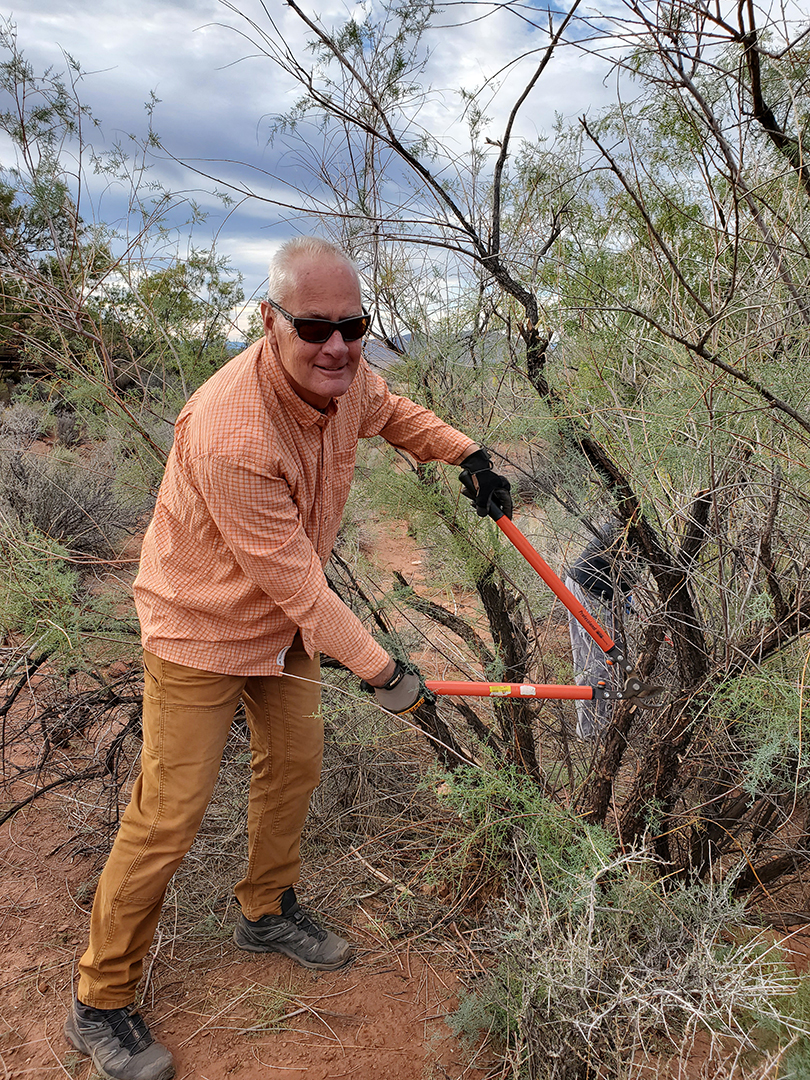
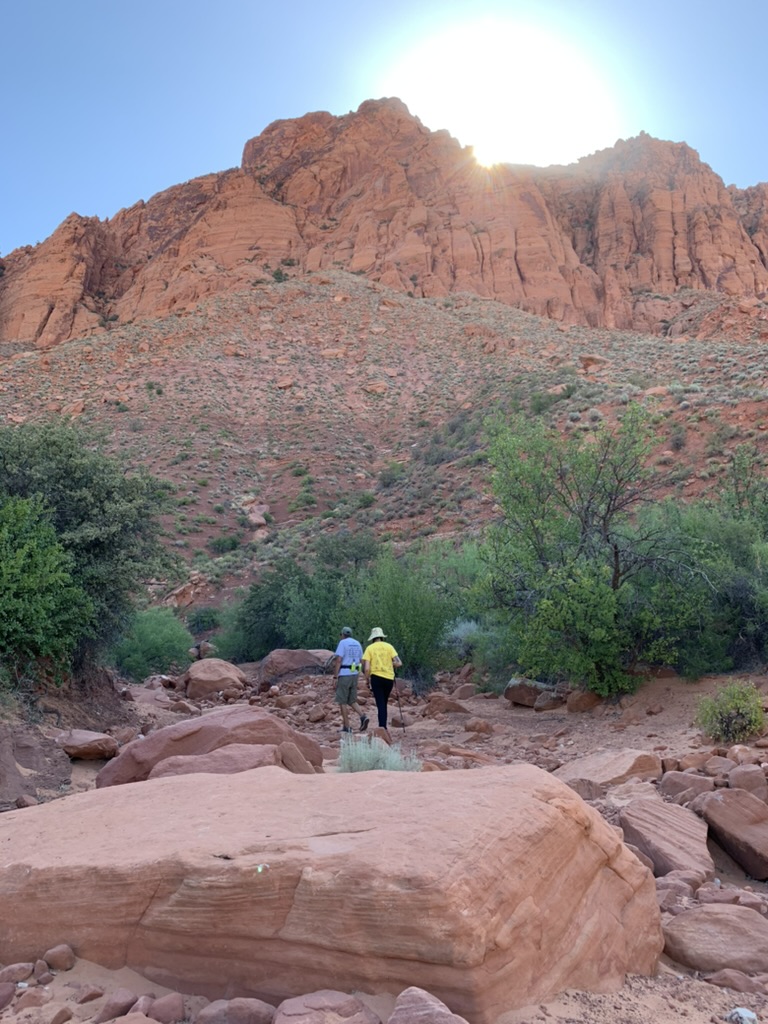
The value of our landscape is both personal and practical. Your opportunities to be outdoors, enjoying the beauty of the area by walking, hiking, biking or simply sitting on your patio watching the kaleidoscope of the ever-changing skies, are enhanced by our stewardship of the land.
And, with strategic planning, these same benefits will be available to your children and grandchildren.
Beyond these personal advantages, the work of DPI is intensely practical. Invasive species, particularly tamarisk, pose a clear fire danger and can create erosion problems. Addressing these concerns helps to support community and property values directly through risk management.
Find out what We Do at DPI
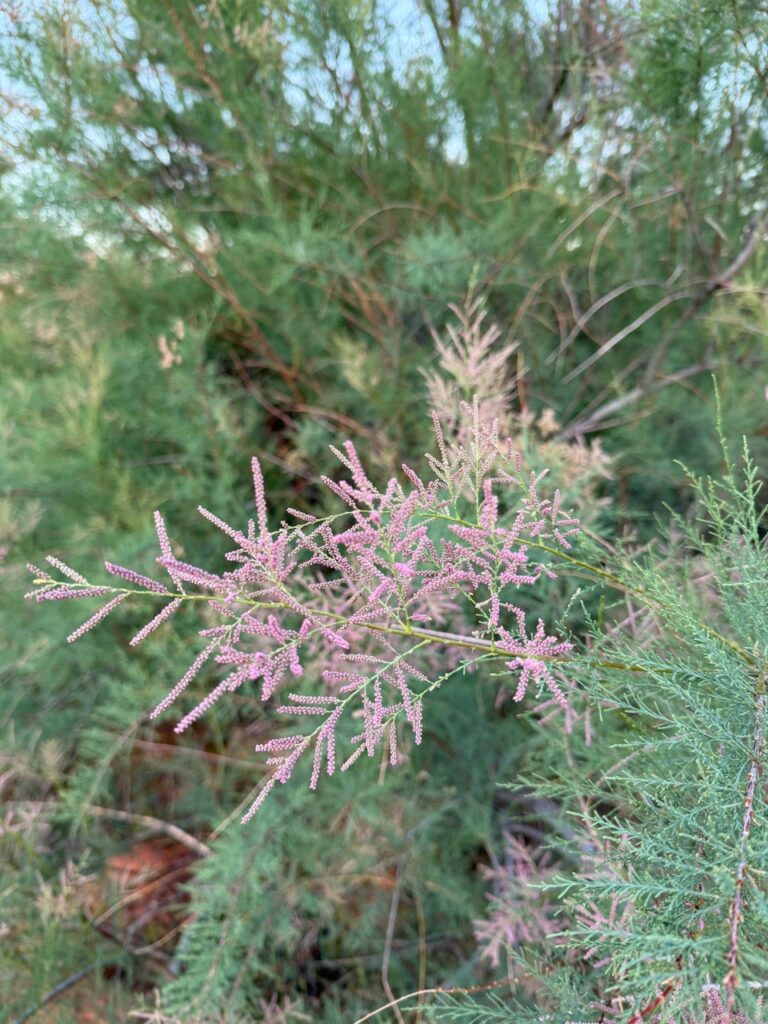
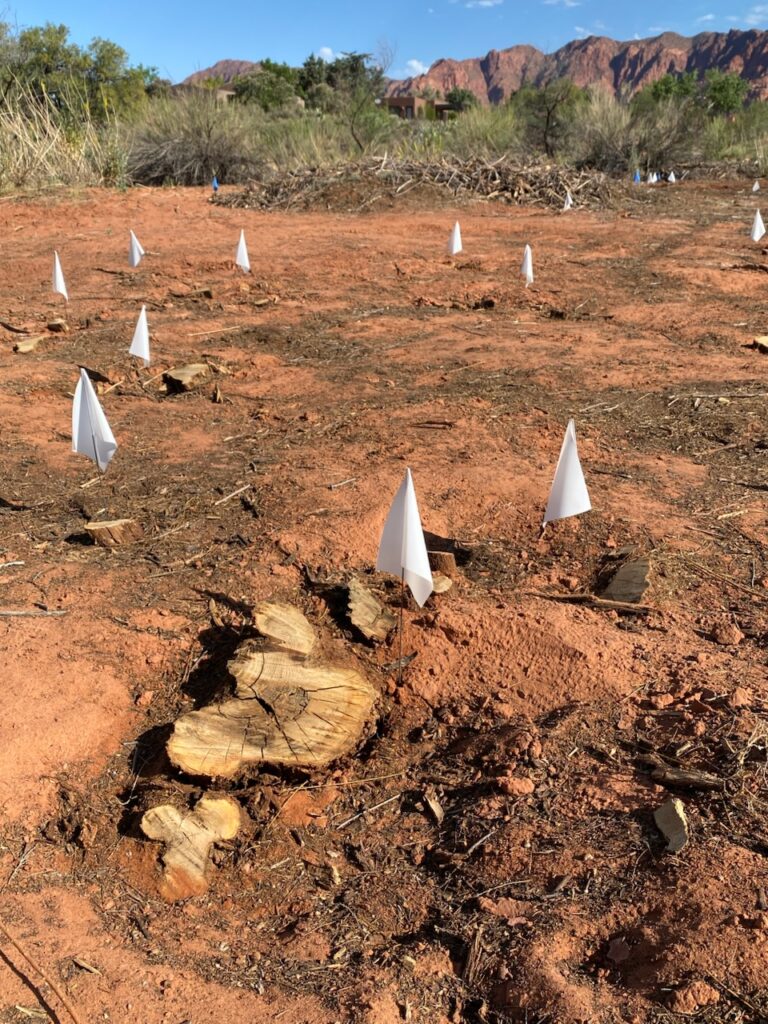
Tamarisk The Terrorist
In the natural world, tamarisk is a terrorist. An invasive species, it takes over large swaths of land, kills other plants, and generally wreaks havoc in the environment where it imposes its implacable will.
As with other terrorists, it sometimes tricks us, dressing in beautiful robes of fragile pink flowers so that we momentarily forget the destruction it causes.
Do not be fooled, the tamarisk is a terrorist.
An invasive species, it takes over large swaths of land, kills other plants, and generally wreaks havoc in the environment.
The primary target of our current effort is the tamarisk, also known as salt cedar. While there are a number of invasive species in Southern Utah, our current focus is on tamarisk because it presents the biggest problem, sucking up as much as 200 gallons of water a day per tree and exuding salt through its leaves which kills most other plants and drives away animals that feed on those plants.
In light of the terrible California fires and most important from a community perspective, Tamarisk presents a huge fire danger. Records show that fires in areas of tamarisk infestation are bigger and more frequent. The accumulation of dead branches and leaf litter creates a highly combustible fuel load. Yet tamarisk recovers more quickly from a fire than other plants because it resprouts vigorously from its crown—creating the potential for yet another fire down the road.
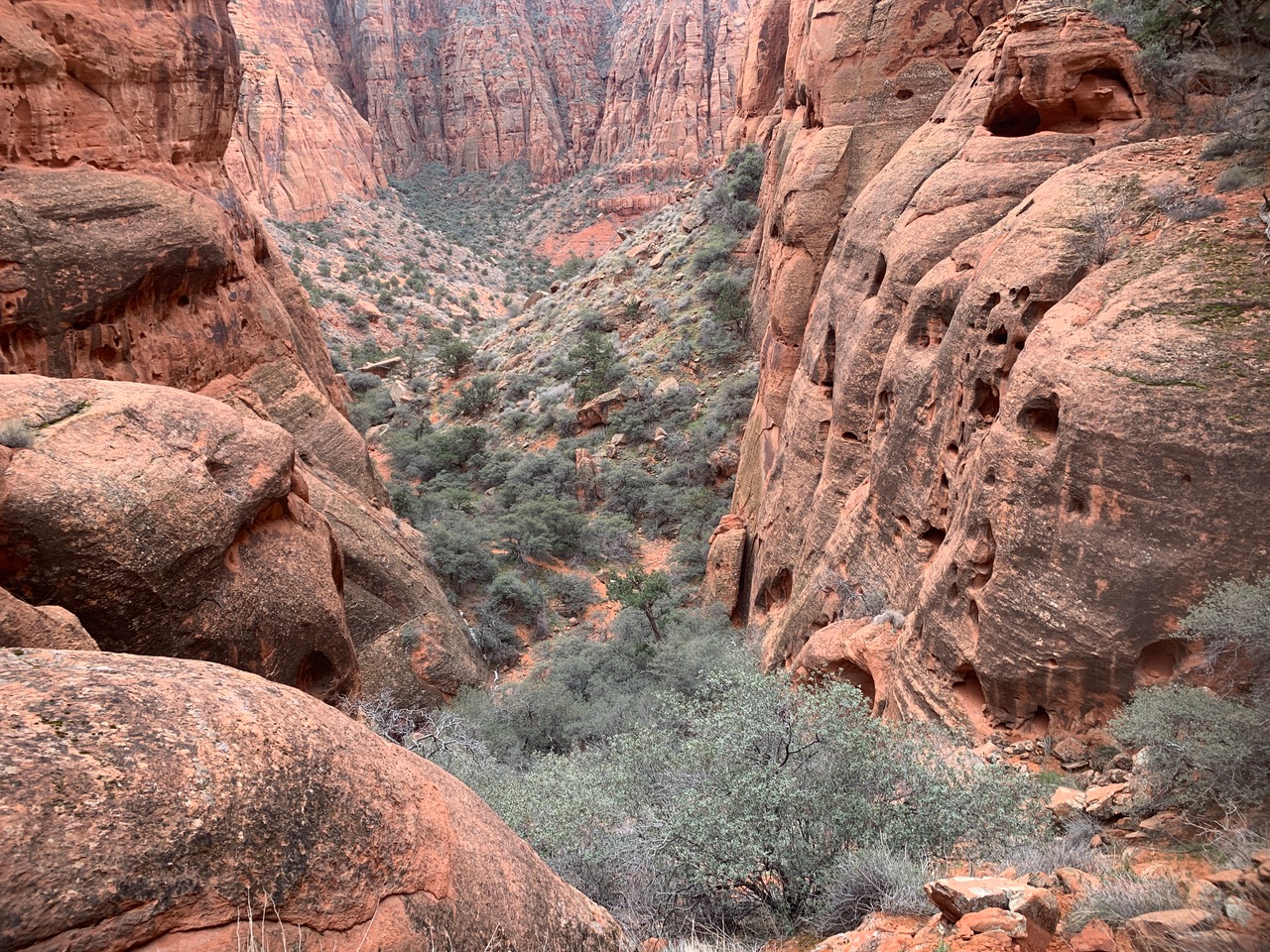
Contact Us!
While the vast majority of the work undertaken and completed by the members and volunteers of DPI involves purely physical labor, what we do, and how efficiently and effectively we can accomplish our goals means we also rely on a variety of mechanical tools as well as the herbicide needed to treat cut tamarisk stumps to prevent regrowth.
In addition, our communication and outreach efforts require covering some basic expenses for printing, maintaining our website, and managing our digital assets.
Please consider donating your money, or your time as a volunteer, to support us in these efforts. We love hearing from you and look forward to working together!
Or...Send Us an Email Here:

